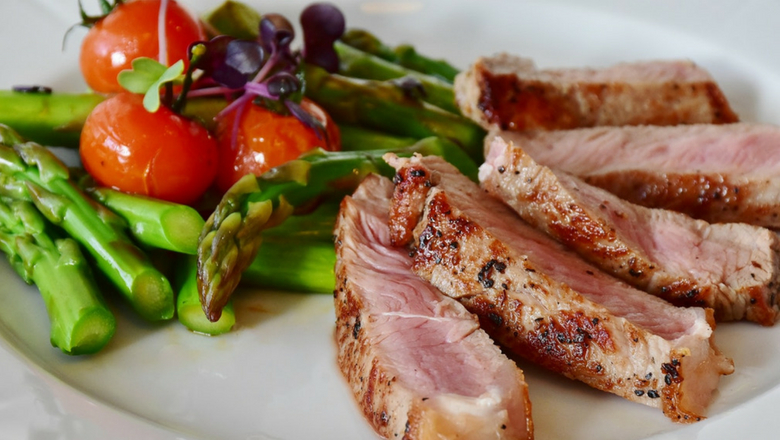I have recently been thinking more about vegetarian diets. It works for some, doesn’t work for others, and I can’t say I am for or against it. The part of vegetarianism that makes sense to me is the focus on eating an abundance of vegetables and fruit. Where I start questioning things is when it comes to protein intake, hence this exploration.
Please keep in mind as you read the information below that it is always important to shop non-GMO, free range/cage free and organic whenever possible AND eat a balanced diet. Even meat eaters should not eat it more than once per day. With that said, let’s turn our attention to proteins.
Proteins are made up of simple organic products known as amino acids. There are 20 amino acids that combine in different ways to make up the body’s proteins. While the body needs to get all of these amino acids in one way or another, it can actually make 11 of them. What about the other 9 you ask? The other 9 are known as essential amino acids, meaning it is essential we obtain them through the diet since the body cannot produce them. If you are a meat eater, this is not a of concern. Meat and eggs contain all the essential- plus some non-essential- amino acids the human body needs. If you are a vegetarian, however, this can be more difficult. For the most part, vegetarians need to find ways to create complete proteins.
Complete proteins are ones known to contain all the essential amino acids the body needs but cannot make. Complete proteins can be created by combining legumes (think beans, lentils and peanuts) with whole grains (think wheat, rice and corn). If you’ve ever wondered why rice and beans are so often served together, you now know why. Rice and beans together make a complete protein!
With a little research I also discovered there are a few plant-based items that are in-and-of themselves complete proteins. Even though this is the case, keep in mind they do not contain as much protein as meat sources.
According to https://www.piedmont.org/living-better/what-is-a-complete-protein these plant-based complete proteins are:
- Quinoa
- Buckwheat
- Hempseed
- Blue-green algae
- Soybeans

